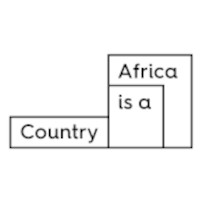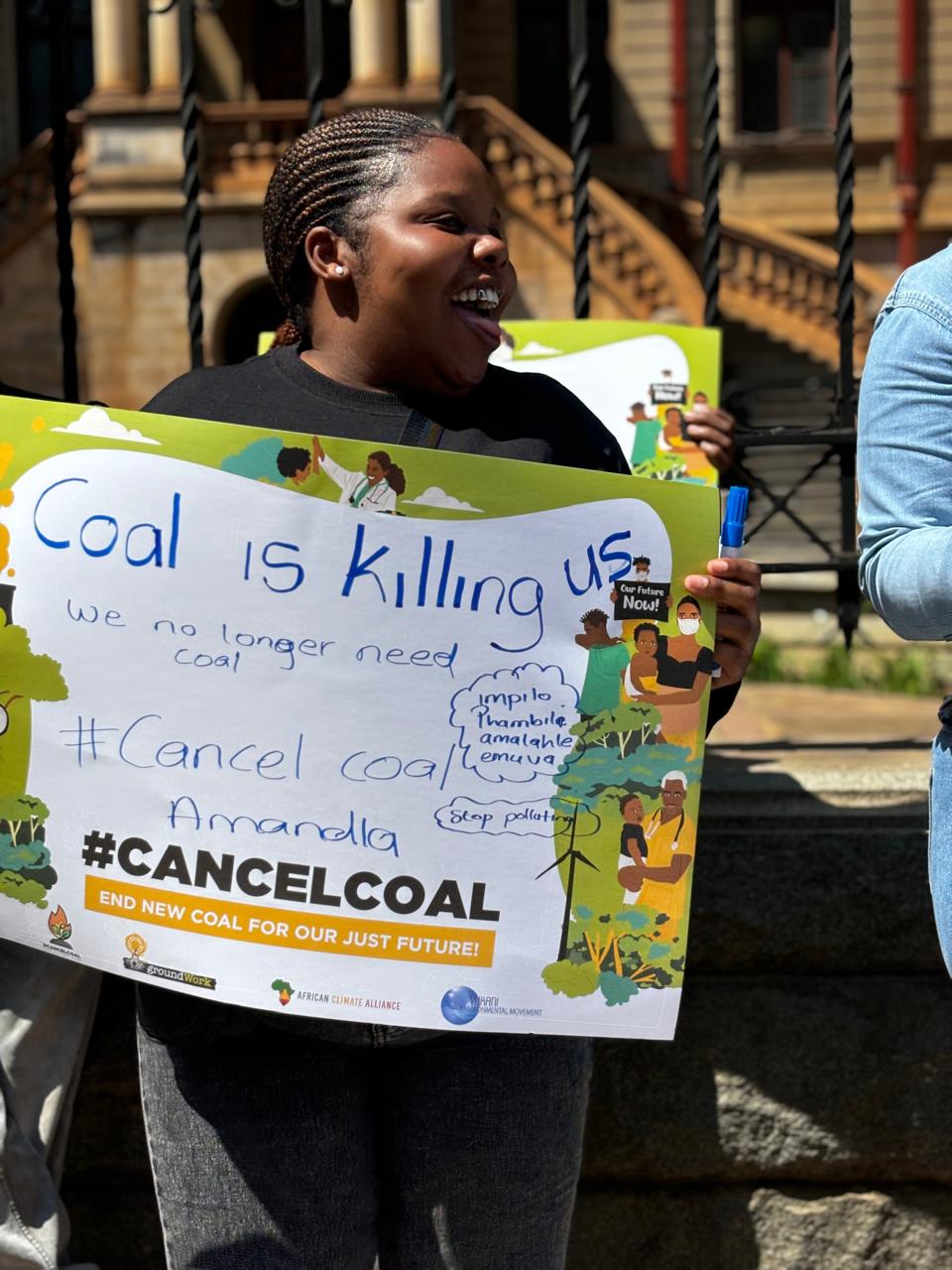Revisiting the pre-Internet papers of left, anti-colonial revolt from the continent can remind us of messy, rich alternatives.
Image © Revolutionary Papers.
This post is the first in a series from the Revolutionary Papers project.
In his study of Abyotawi Medrek (Revolutionary Forum), a daily column published in the popular Amharic daily Addis Zemen in Ethiopia between 1976 and 1977, Semeneh Ayalew Asfaw identified a rich archive of debates on the African left. Semeneh argues that in a brief period, before the “horrors of the Terror Years [in Ethiopia] that not only stifled free political deliberation and debate but also threw the country into the carnages of authoritarian military rule,” Abyotawi Medrek became a forum for an open and free debate on the meaning of a new revolutionary society. Addis Zemen was known as a mouthpiece of the state, but in Abyotawi Medrek revolutionaries of several parties, tendencies, and points of view, debated a dizzying array of pressing questions facing the left: What does African socialism look like, and how does it relate to universalist articulations of Marxist-Leninist ideology? What role should student politics play in a post-revolutionary landscape? How should left-wing activists and organizers respond to the rising authoritarianism of a popular socialist movement that had managed to capture state power?
Central to Semeneh’s deep dive into a column authored by multiple people and collectives, penned in these early years of the Ethiopian revolution, is a crucial contention: Despite the persecution, destruction, and near disappearance of revolutionary politics, people once imagined and debated more capacious, emancipatory worlds. And in remarkably prescient fashion, they foresaw the coming nightmare of post-revolutionary, authoritarian regimes, and strategized how to address reconfigured forms of violent power. In a neo-colonial present, and in the aftermath of revolutionary disappointment and malaise, these worlds may seem like pie-in-the-sky pipe dreams. However, columns like Abyotawi Medrek are a reminder that there were once serious propositions outlining new ways to reconstitute social life—and a deep awareness of the battles that still lay ahead, even in places never, or no longer, colonized.
This post inaugurates a series on such material legacies of the African left. It comes out of a project that we co-launched in 2019, Revolutionary Papers, which studies leftwing, anti-colonial, and anti-imperial periodicals, newspapers, newsletters, journals, magazines, and other print ephemera out of the Global South, in the 20th century, as sites of critical, analytical, aesthetic, political, cultural, and literary experimentation.
Our project has worked with papers from Pakistan, Chile, China, Palestine, South Africa, Bangladesh, Cuba, Oman, Tunisia, Ethiopia, India, Namibia, and elsewhere. Now we’ll spend the next few months joining forces with Africa Is a Country – which itself was inspired by radical publications of the anti-apartheid struggle – to bring you writings on rich, complex, contradictory, sometimes invigorating and sometimes deeply troubling revolutionary papers from around the continent. At Revolutionary Papers we’re not just trying to revisit periodicals of the faraway past, but to create a space to work with movement texts created in the present, as one way to ensure that we do not veer too far away from the imperative of solidarity and publication as action, a key, radical thrust in the politics of revolutionary papers produced in anti-colonial movements.
It has now been seven years since students took over South African campuses, igniting a wave of global demands to end the colonized university. Like anti-systemic, revolutionary movements that have gone before them around the continent and in the broader colonized worlds, the protests inaugurated important debates not just about a post-Fallist university, but about a society after colonialism. And, like the collectives that preceded the thriving, mass-scale protests, students have witnessed an almost wholesale co-optation of the politics they proposed: the very administrations that invited in police and security forces are now at the forefront of declaring decolonization as part of their corporate agendas.
We launched Revolutionary Papers to remember against the erasures that such cooptation and depoliticization have generated over the years. What emerges are paper archives that despite their sharp analysis and centrality to anti-colonial theorization remain scattered, fragmented, and repressed—and experimentations in political thought and art that reveal the plural and complex ideas collectives propagated about a world after empire. These papers also remind us that not all anti-colonial activists saw eye to eye in unfolding struggles and that some were already en route to reproducing other kinds of hierarchy and oppression, even resurrecting colonial power in new ways.
Take, for instance, The Namibian Review, a journal that Koni Benson studies with Nashilongweshipwe Mushaandja and Asher Gamedze. Published between 1976 and 1987 by Namibians in exile, its purpose was to “establish the broadest possible united front against foreign domination,” by providing “a platform for writers of many backgrounds and viewpoints…a forum for debate and an arena where conflicting opinions may clash.” In its pages, one of its longest-standing members, Ottilie Abrahams, as well as other writers such as Moses Katjiuengua and Kenneth Abrahams in the Review warned against the politics of “sole authenticity”: The propensity for anti-colonial internationalists, donors, and the Organization of African Unity’s Liberation Committee to repeatedly identify only a single political formation (such as SWAPO) as the only legitimate representatives of the Namibian people.
In this critique, Abrahams foresaw the creation of undemocratic demagogues and a post-apartheid dispensation that suppressed opposition, created competition for resources, limited democratic practices, and erased the broad constellation of people engaged in resistance. This has an ongoing impact on institutionalized support for the histories and visions of non-SWAPO movements. It is one of the reasons, for instance, it took several years to find copies of The Namibian Review: Its founders primarily came out of a small group of radicals committed to fighting apartheid and colonialism who had left the dominant parties (which they had been part of starting) when democratic debate for critique and alternative propositions was shut down. As a result, their movement materials have not been prioritized in collections of dominant nationalist struggle archiving initiatives, let alone shared in the crucial curriculum of (ongoing) liberation struggle history.
One of the consequences of the absorption of decolonial agendas into the regular workings of the university is that a radical demand is quickly being transformed into a reformist box-checking exercise, and an opportunity for neoliberal universities to commodify radical politics for branding purposes. At its best, calls to decolonize have become abstract exercises aimed at diversifying canons of theory and curriculum rather than strengthening the demands of historical and actually existing political struggles. These calls often cooperate with the repression of social justice movements; repressions that block the inspiration of the past and the opportunity to understand what went wrong in the anti-colonial project. Revisiting radical papers of historical and contemporary movements in conversation with educators, archivists, and contemporary social justice movements and their organizers is one way to challenge such co-optations.
Take, as another instance, Publica[c]tion, a one-time broadsheet curated, authored, edited, and printed in 2017 by those involved with decolonising protests in South Africa. At a time when the histories of the movement are being written by many who actually opposed it, this particular booklet was born out of a desire to create space for black students to write about their struggles. Through an extensive, multi-campus process that included workshops across the country, Publica[c]tion tried to resist the need to “systematise, thematise, make order” of the narrative that is the struggles of black students.
Over the course of 2023, this Revolutionary Papers guest edited series will feature posts from a wide range of authors working with the archives of some of the following journals from African and black diaspora anti-colonial movements: Révolution Africaine Algeria which ran from 1963-1968 and then again from 1973-1993; Spearhead, written from the Tanzania training camps in 1961 and 1963; Tropiques, a magazine founded in the 1940s by Martinican poets Aimé and Suzanne Césaire; The Crisis under the editorship of W.E.B Du Bois; Frank Talk from the Azanian People’s Organisation in South Africa from the late 1970s-1990; Freedomways: A Quarterly Review of the Negro Freedom Movement initiated by a group of independent African American leftists gathered together in New York City (running from 1961-1985); The Voice of the Children/Iswi Labantwana/Die Kinderstem, from the South African Children’s Movement; TheVakalisa Art Associates banned calendars produced by South African exiled artists in Botswana in the 1980s; Black Land News of the US-based Black Land Movement (BLM) and its youth wing the Young Pioneers of New Africa (YPNA) in the 1960s; Abantu Batho which ran from 1912-1931 and Umteteli wa bantu from 1920-1956 as South Africa’s first black presses; Dawn, the monthly journal of Umkhonto we Sizwe (MK) the armed military wing of the African National Congress (ANC) first published in Tanzania in the 1960’s and later revived in Angola in 1977; Blufo a newspaper of the African Party for the Independence of Guinea-Bissau and Cape Verde (PAIGCC) aimed at youth between 1966-1970; Staffrider a South African literary and cultural magazine of the arts, history, and protest in the form of poetry, short stories, graphics and photography from southern Africa between 1978-1993; Nkrumah’s Accra Evenings News which circulated between 1948-1966 in Ghana.
Revolutionary Papers maps the ways that these journals, as forums and forms of organizing, critique, and debate supported social, political, and cultural reconstruction amidst colonial destruction, building alternative networks that circulated new political ideas that dared to imagine worlds after empire. It revisits a praxis of critical solidarity and a regrounding and return is urgently needed in the current moment of predatory neocolonial co-optations and abstractions of radical decolonial movements.






